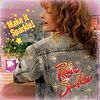THE WEEKLY WRITER
YWS's Unofficial Writing-Related Newsletter
Welcome to this week's edition of the Weekly Writer! Before we go further, shoutout to the cast and crew:
@Lucrezia
@RobinSparkles
@GoldFlame
@lostthought
@Silverlock
@CesareBorgia
@JayeCShore
@WritingWolf
@Messenger
@FatCowsSis
@GreenTulip
@Sunshine1113
@Certainly Love
@RobinSparkles
@GoldFlame
@lostthought
@Silverlock
@CesareBorgia
@JayeCShore
@WritingWolf
@Messenger
@FatCowsSis
@GreenTulip
@Sunshine1113
@Certainly Love
Now onto the articles!







Gender:
Points: 300
Reviews: 0